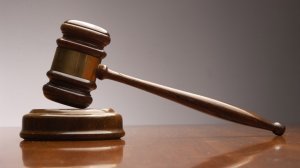Click here to read the full judgment on Saflii
[1] This matter was argued before me on 29 October 2019. A decision is required before the meeting of the council of the fourth respondent, which is scheduled to commence at 10h00 on 31 October 2019. The judgment has therefore been prepared under considerable time pressure. The luxury of a reasonable period of time in which to gather and assemble my thoughts has been denied me and I must do the best with the time and the materials that I have at my disposal.
[2] The matter concerns the position of the first respondent in his role as Speaker of the council of the fourth respondent (i.e. the tenth respondent in these proceedings). The applicants’ ultimate aim is to have the first respondent removed as Speaker of the council of the fourth respondent and to have the second respondent removed from his position as Deputy Mayor of the fourth respondent. For that to be achieved the applicants, in this application, seek orders intimately connected with the occupation by the first respondent of the office of the tenth respondent.
[3] In Tlouamma and others v Speaker of the National Assembly and others 2016 (1) SA 534 (WCC) the court referred to the qualities of a Speaker (there with reference to a National Assembly but substantially equally applicable here) by inter alia referring to G Bergougnous: Presiding Officers of National Parliamentary Assemblies: A World Comparative Study (1997) (Inter-Parliamentary Union, Geneva) at 97, 99 where the ‘typical’ Speaker as a person was defined as someone:-
“With long experience of parliamentary life, elected by the Assembly he presides for Parliament’s term with no possibility of dismissal, belonging to the majority acting with impartiality, respecting and enduring respect for the rights of the opposition. His role primarily focuses on the chairing of public sittings, a task he may temporarily hand over to a replacement, appointed or elected for this purpose. During the sitting, he maintains order and discipline, ensures respect for the rules of procedure by interpreting its provisions if need be, gives the floor or withdraws the right to speak, and initiates the voting procedure. On the other hand, he refrains from taking the floor during debates, gives up his right to propose legislation and only votes in exceptional circumstances.”
EMAIL THIS ARTICLE SAVE THIS ARTICLE ARTICLE ENQUIRY
To subscribe email subscriptions@creamermedia.co.za or click here
To advertise email advertising@creamermedia.co.za or click here








![Mabaso and Another v Khumalo and Others (7663/19P) [2019] ZAKZPHC 71](https://cisp.cachefly.net/assets/articles/images/resized/0000836520_resized_gavel2legallaw1022.jpg)


